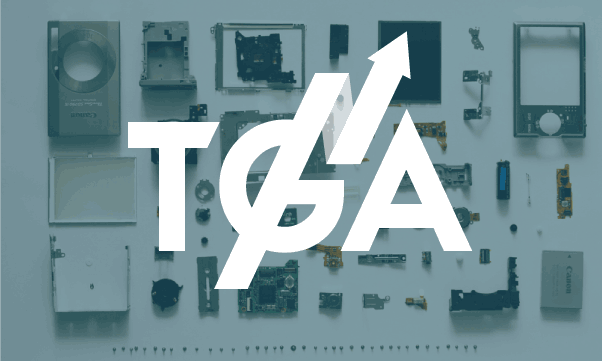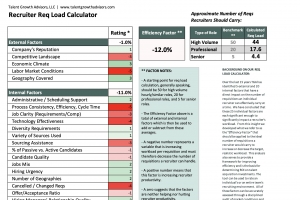It’s Happening: Google Workers’ Union
![]()
Can a mere 225 unionizing Google employees out of 260,000 have much of an impact?
Step right up human capitalist investors! The value of intellectual capital for the average company in the S&P has moved from negligible in the early 1970s to an astounding 90% of market capitalization today (1). The knowledge economy has blossomed, yet we’re only beginning to see the inevitable socio-economic change that will accompany this shift. One significant manifestation of this change: the newly announced “workers union” at Google, which represents a tectonic shift away from the traditional industrial economy. Here’s why:
The term “union” may be the same, but the meaning will surely be different. In the industrial economy, the worker’s role was to enable capital (machinery, equipment, inventories, etc.) to be productive; the human condition of those very workers and their families was the reason for organizing, and the focus of union demands. During the industrial economy, fair and equitable treatment for those who provided manual labor fueled investors’ return on capital.
Today the people dynamic is reversed. Human capital, that is, the intellectual capability of human beings, is the unique source of all intellectual capital: patents, brands, technologies, inventions, proprietary methods, etc., – collectively 90% of the average company’s market value. Knowledge workers don’t merely enable productivity, they are the means of production in today’s world. As such, they are aligned more closely with the concept of investors than the concept of labor.
In 2015, I coined the term “human capitalist investor” to describe the behaviors and expectations of top talent in our knowledge economy. Just as corporations consider their human capital to be - in effect - equity, that human capital intuitively considers themselves to be investors. Beyond baseline expectations of financial and developmental compensation, human capitalist investors expect to influence how companies choose to comport themselves, internally and externally, just as financial investors do. These uber-expectations encompass:
• Involvement in determining ESG (environmental, social, governance) criteria and principles of the corporation
• Inclusion in establishing and monitoring standards of workplace fairness, diversity practices and ethical behavior
• Changing the status quo for the better for communities the corporation can affect
Google, as a “trillion-dollar club” corporation, is special in terms of intellectual capital, with nearly 100% of its market value attributed to IC. Other tech giants and many leaders in the pharma and consumer products industries are at the same extreme of IC-weighted market value.
Can a mere 225 unionizing Google employees out of 260,000 have much of an impact? You bet. This group is essential to accelerating an already $1+ trillion in company market value and, as a group, are indispensable. They are top-of-the-tier knowledge workers who measure their total compensation in the millions (not hundreds of thousands) of dollars. If they contribute 1% of their compensation to union dues, their bargaining unit will be very well-funded. Their union, in many ways, resembles a private equity firm which will undoubtedly grow larger in membership, funding, and power.
I predict that soon the existing nomenclature for knowledge workers (“workforce”, “labor”, “employees”) will be recognized for how insufficient it describes the importance of this talent. While “human capitalist investor” may be too unwieldy, the fact remains that talent planning strategies needed to hire, develop, engage, and retain critical knowledge workers must evolve. Inevitably, these human capitalist investors will demand it. Better to get in front of the train and attract them, instead of minimizing their importance by using old school, pedestrian talent management practices.
The Alphabet Workers Union is tangible evidence of the intangible value their members create, and which all companies rely on for growth in 2021 and beyond.
For more on this topic, please order our books, Talent Valuation: Accelerate Market Capitalization through Your Most Important Asset and Building Business Value through Talent: the CEO and CHRO Partnership Guide (Spring 2021).
(1) https://www.oceantomo.com
Share this Article
Learn more about our unique approach to Talent Strategy Formulation.



